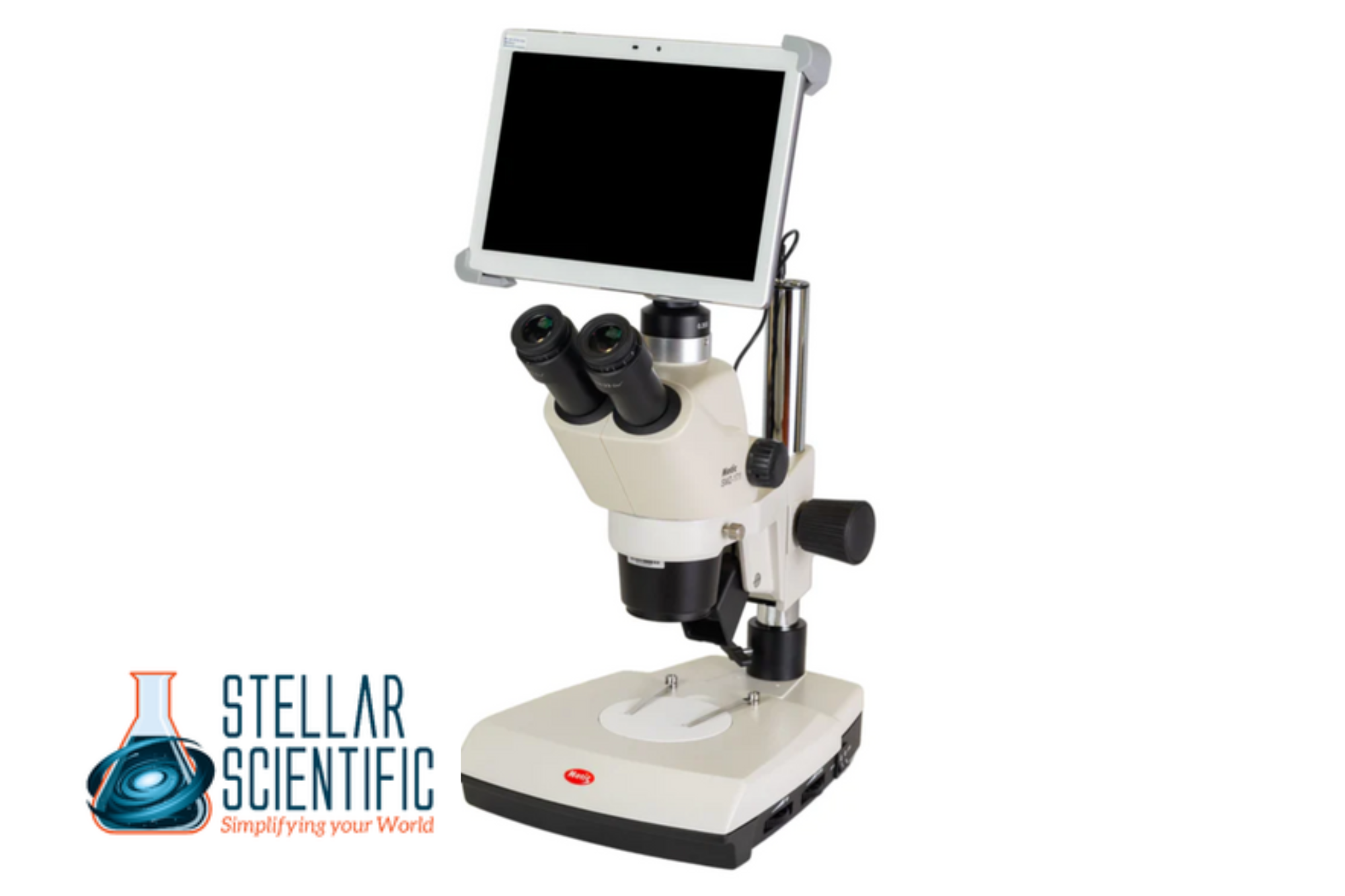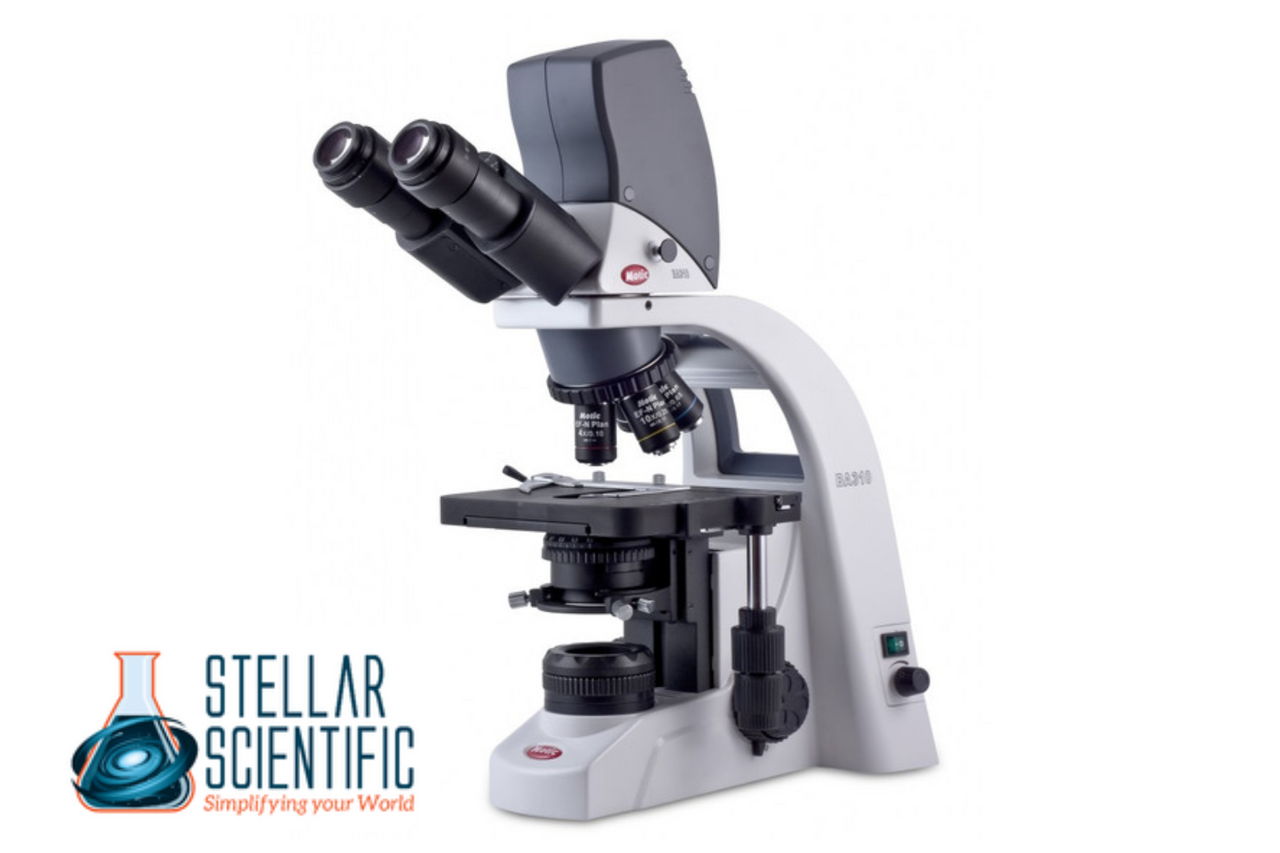In the world of scientific discovery, having the right tools can make all the difference. Whether you're working in biology, materials science, forensics, or industrial inspection, the ability to observe fine details with clarity and precision is essential. Motic stereo microscopes provide the magnification power and optical performance needed for detailed surface observation, dissection, and quality control—all in a user-friendly, ergonomic design.
Motic has earned a reputation for producing affordable, high-quality microscopes that meet the demanding needs of researchers, educators, and technicians. Their stereo microscope lineup combines durable construction, superior optics, and thoughtful features that enhance lab productivity and elevate research outcomes.

What Is a Stereo Microscope?
A stereo microscope, also known as a dissecting microscope, is a low-power optical microscope that offers a three-dimensional view of the specimen. Unlike compound microscopes, which are used to view thin samples at high magnification, stereo microscopes are designed for observing solid or thick specimens at relatively low magnification—typically between 5x and 80x.
Stereo microscopes utilize two separate optical paths, allowing each eye to view the specimen from slightly different angles. This results in a stereoscopic (3D) image that provides depth perception, making it easier to manipulate and inspect objects under the microscope.
Advantages of Motic Stereo Microscopes
Motic stereo microscopes are engineered to support a broad range of applications, offering a combination of reliability, clarity, and versatility. Some of the key benefits include:
1. Superior Depth Perception
The dual optical paths in Motic stereo microscopes provide excellent depth of field and a realistic 3D image, which is critical for tasks that involve manipulation, sorting, or dissection of specimens.
2. Crisp, High-Resolution Optics
Motic's Greenough optical system delivers sharp, distortion-free images. With high numerical aperture objectives and anti-reflective coatings, users benefit from excellent light transmission and contrast—even at lower magnifications.
3. Ergonomic Design
Designed with user comfort in mind, Motic stereo microscopes include features like adjustable interpupillary distance, comfortable eyepieces, and long working distances, allowing extended use without strain. Their compact footprint and stable stands also fit easily into a variety of workspaces.
4. Wide Range of Applications
Motic stereo microscopes are suitable for both professional and educational settings. Common applications include:
- Biological dissection and sample preparation
- Entomology and botany studies
- Quality control in electronics and manufacturing
- Gemology and mineral inspection
- Forensic analysis and document examination
Popular Motic Stereo Microscope Models
Motic offers a range of stereo microscopes to meet different needs and budgets, from entry-level student scopes to advanced research-grade systems.
Motic SMZ-171
The Motic SMZ-171 is a research-grade stereo zoom microscope that features a 6.7:1 zoom ratio, high-quality Greenough optics, and optional accessories for fluorescence or digital imaging. It’s a popular choice for life sciences and industrial labs that require consistent, high-performance imaging and flexible configuration.
Motic K Series
The Motic K Series, including the K-400 and K-700, offers modular stereo microscopes with a parallel optical system. These models are especially useful for high-precision tasks in materials science, microelectronics, and medical device inspection. They provide superior optical clarity and magnification ranges, along with options for trinocular heads for camera integration.
Motic SMZ-140 and SMZ-143
Ideal for educational and routine laboratory use, the SMZ-140 and SMZ-143 provide durable performance with zoom capabilities in a compact design. These models are well-suited for classrooms, training labs, and light industrial inspection tasks.
Enhancing Research with Accessories and Imaging Tools
Motic stereo microscopes can be enhanced with a variety of accessories that further support research and teaching.
Digital Imaging
Many models offer trinocular ports for attaching a digital camera. With Moticam cameras and Motic Images Plus software, users can capture high-resolution images, perform measurements, and share findings for collaboration or publication.
Illumination Options
Proper lighting is essential for stereo microscopy. Motic microscopes are compatible with LED ring lights, gooseneck fiber optics, and transmitted light bases, enabling users to adapt to different specimen types and lighting conditions.
Auxiliary Objectives and Eyepieces
To customize magnification and working distance, researchers can choose from a variety of auxiliary objectives and eyepieces, expanding the microscope’s versatility for different research tasks.
Real-World Applications of Motic Stereo Microscopes
Stereo microscopes are used in a variety of disciplines. Here’s how Motic stereo microscopes support important scientific work:
Biological and Botanical Research
In life sciences, stereo microscopes are invaluable for dissecting small organisms, studying plant structures, and preparing specimens for further analysis. Motic microscopes allow researchers to handle delicate samples while maintaining visual clarity.
Forensic Science
From document examination to trace evidence analysis, forensic labs use stereo microscopes to inspect fibers, tool marks, and counterfeit materials. The depth perception provided by Motic stereo scopes is critical for interpreting complex forensic evidence.
Electronics and Engineering
In industrial inspection, stereo microscopes help detect defects in printed circuit boards (PCBs), solder joints, and microelectronic components. Motic’s precision optics allow quality assurance professionals to identify flaws without damaging the product.
Paleontology and Geology
Scientists use stereo microscopes to study fossils, rock samples, and minerals, where surface texture and morphology provide key insights. Motic scopes offer high resolution and long working distances, making them ideal for analyzing three-dimensional samples.
Education and Training
High-quality Motic stereo microscopes are widely used in high schools, colleges, and vocational training programs. Their ease of use and robust construction make them perfect for teaching the fundamentals of microscopy, observation, and analysis, providing students with reliable tools to support hands-on learning.
Choosing the Right Stereo Microscope
When selecting a Motic stereo microscope, consider the following factors:
- Zoom range and magnification needs
- Working distance and field of view
- Digital imaging and documentation requirements
- Lighting options and specimen types
- Application-specific features (e.g., fluorescence, darkfield)
Working with a trusted supplier like Stellar Scientific can help ensure you choose the right microscope for your research environment, budget, and technical goals.
About Stellar Scientific
At Stellar Scientific, we’re dedicated to providing the tools that help researchers, educators, and lab professionals achieve their goals. We offer a carefully curated selection of Motic stereo microscopes, accessories, and imaging solutions—backed by knowledgeable support and fast shipping. Our mission is to empower scientific progress through reliable, affordable lab equipment and outstanding customer service.
Whether you're exploring biological specimens, conducting quality control inspections, or training the next generation of scientists, Stellar Scientific is your go-to source for premium laboratory supplies.


